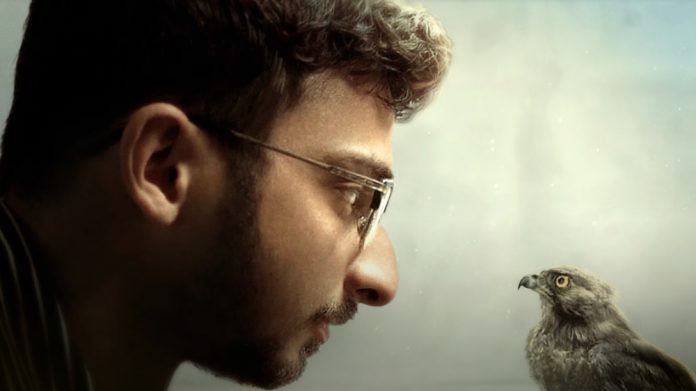Indian filmmaker Shaunak Sen‘s All That Breathes is among the nominees for Best Documentary Feature at this year’s Academy Awards — this after winning Grand Jury Prize honors at the Sundance and Cannes film festivals.
All That Breathes follows two brothers, Nadeem and Saud, who live in Delhi, India, and devote much of their time to protecting the Black Kite bird. The acclaimed film has plenty to say about interpersonal and interspecies relationships, and it has connected with audiences all over the world with its universal story of love and compassion.
Above the Line recently spoke with Sen about how he relates to Delhi and the role the city has played in his two films, including his 2015 debut Cities of Sleep. He highlighted the collaborative process with the two human subjects of All That Breathes and the arduous work put in by his crew over the course of three years of shooting.
Sen also praised his fellow Oscar-nominated documentarians and conveyed a deep appreciation for the perspectives that each filmmaker brought to their craft, as well as for those who tell nonfiction stories in general, which is as much a calling as it is a career.
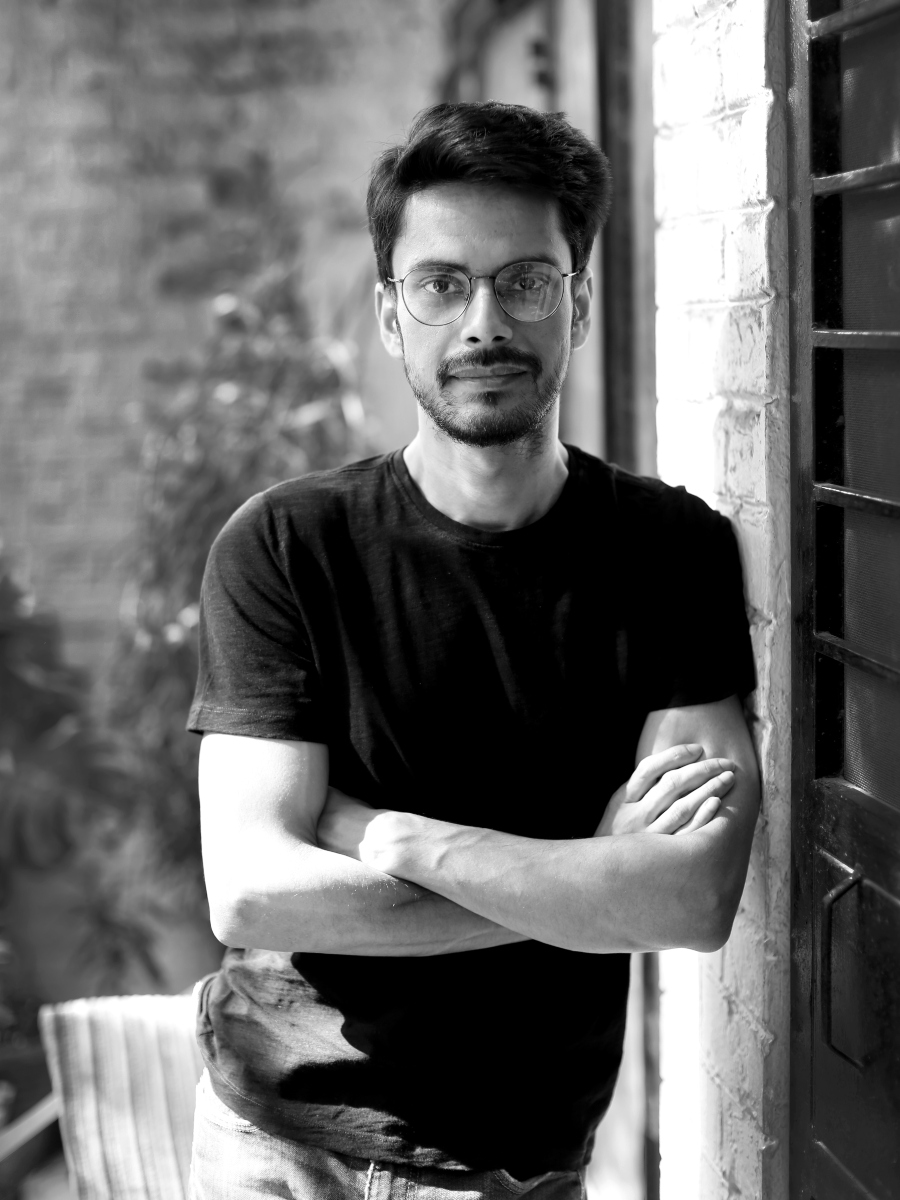
Above the Line: Can you tell me about your relationship with Delhi and how it played into your first film as well as All That Breathes?
Shaunak Sen: The directorial team and I have actually all worked on both films together. We are all very embedded in the city, so we know the vernacular and colloquial contexts of the city extremely intimately. So therefore, what happens is that when you apply a very distinct lens to a city, it desegregates itself in ways that you wouldn’t have expected. For instance, to look at a city through the lens of sleep just opens up a different kind of city. Similarly, to look at the city through the lens of birds, or the air, just again, opens up a different kind of city. I think we were all interested in how the city reconfigures itself differently when looked at through different prisms. My relationship with Delhi is also constantly trying to mitigate against the way middle-class parents have brought you up. The films are a way to engage with the cities.
ATL: I know that you’ve said this is not a wildlife documentary, but rather one about the city. Do you have an interest in birds in general, or is that something that came about through this approach?
Sen: Not in any serious way. I was a very amateurish birder, with no serious interest in ornithology, just a passing, fleeting interest in birding. But since the film, of course, you’re completely in the grips of the film for the longest time, so it changes and now it’s begun fading again.
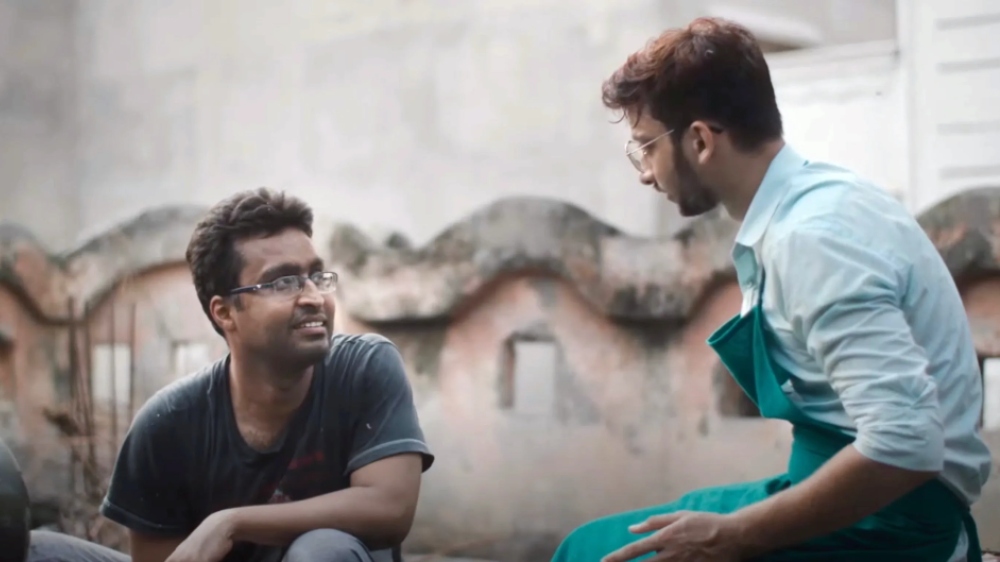
ATL: What was it like to work with Nadeem and Saud? How did they become interested in making this film?
Sen: I knew I wanted to do something on the tone or texture of life in Delhi because of the air, that I wanted to do something that was meditative about air and greenness. And I was also interested in human-animal relationships, philosophically, and once I discovered the work of the brothers [through] a simple Google search, I was ready and I visited them. I was blown away by the singular nature of what they do and the sheer, staggering opacity of why they do what they do. And then the brothers started working with us. And after a while, in this co-creative non-fiction film, you just become a part of the wallpaper of their life and you just carry on. So there was no agenda in terms of what I told them or what they wanted from the film at all.
ATL: Were there any particularly difficult challenges in making this film?
Sen: We shot for three years. Finding enough wherewithal of all kinds to soldier on for three years, I think. Above and beyond that, the main challenge in this film was finding a form that deployed tools from the fiction toolkit while holding onto the essence of documentary and pushing [it] in a way where it feels creative and interiorized, while also holding to a kind of vérité sensibility. That straddling of lines was what was most challenging.
ATL: Do you have any cinematic influences that you looked towards in that?
Sen: Cinematographically, it was Viktor Kossakovsky. In fact, his DP came and shot for us, Ben Bernhard. In terms of the edit, it was Gianfranco Rosi. Generally speaking, I think the spirit of [Andrei] Tarkovsky, the East European influences, like Béla Tarr and so on, really loomed large. They were the cloud of cinematic rhythms that we were constantly looking toward, just to situate and ground us in terms of cadence and rhythm.
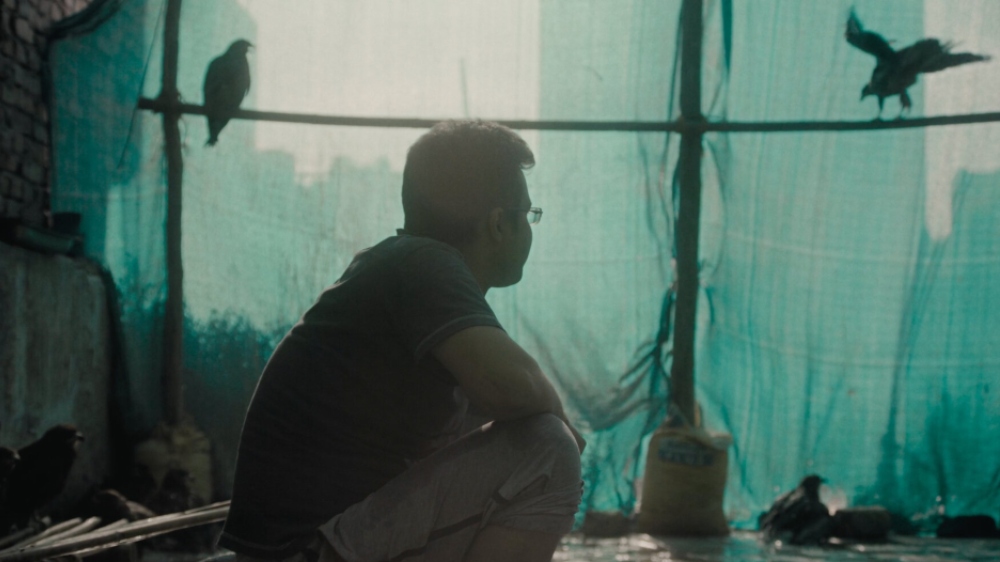
ATL: Do you think it was helpful to have had that first film under your belt? Did you learn a lot as a filmmaker from your previous experience?
Sen: I feel like that was a necessary rite of passage. It was truly tough, the first film, and by this film, we knew the ropes of grant writing, how to apply for things, how to pace oneself. The recognition that it’s a marathon and not a dash is very important. And, of course, you get more confidence, [and] you figure out what you want to hold on to. I like poetic, lyrical things, and I wasn’t confident enough in the previous film to push it fully.
ATL: Was there any resistance to this film being made or any political pressure?
Sen: No, none whatsoever so far, thankfully. I hadn’t expected it because it’s primarily an ecological film.
ATL: Have you shown the film in India?
Sen: At various festivals and various private screenings, yes. And we’re still trying to figure out how to get it on a platform there, but I’m quite hopeful that it will be up sooner than later.
ATL: Has the response in India been different from other places?
Sen: I think people catch on to the nuances of the sociopolitical stuff better. People are more aware. For someone in the West, it may be that there seems to be something ominous brewing in the background, but people in India catch on to the context much quicker.
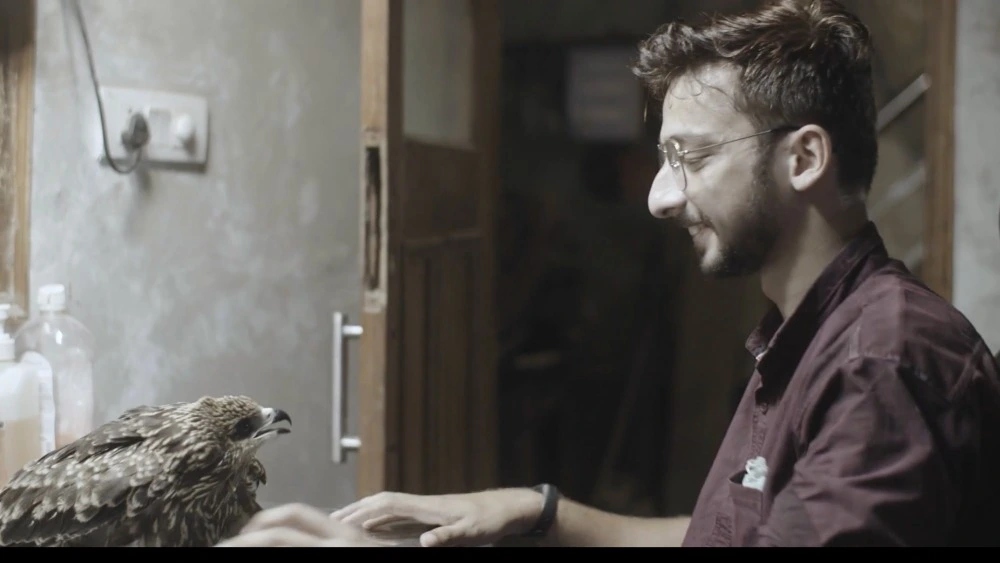
ATL: This film won the Grand Jury Prize at both Sundance and Cannes. Were there any particularly memorable or surprising reactions from those festival audiences?
Sen: This film has three threads in it. The ecological, the emotional [bond] between the brothers, [which is] the emotional center anchoring the film, and then there’s the political. I think, in countries abroad, it’s the more universal cinematic aspects that resonate the most. Some people are not interested in the birds but interested in the brothers, some are not interested in the brothers and only in the animals. It depends, really. All my favorite films are dense and variegated enough for them to have different points of appeal, so hopefully, people have different approaches.
ATL: I take it that the brothers have seen the film at this point…
Sen: Of course. The brothers saw two rough cuts while we were editing. We showed different sequences to them and shot the editing software timeline to send videos to them. They came to Cannes. Nadeem has now gone to almost as many film festivals as I have. They are currently in London, they were there for the BAFTAs, and they’re going to come for the Oscars. They’re traveling and have given multiple interviews, and, of course, have seen the film umpteen times.
ATL: Joshua Oppenheimer is credited as a consulting producer on the film. What was the extent of his involvement in All That Breathes?
Sen: Joshua is a close friend of the editor, Charlotte Bengtsen, who also worked on Act of Killing. We got the film in Copenhagen, where he lived at the time, and he was generous enough to come in for a very early rough-cut session, and he gave us notes.
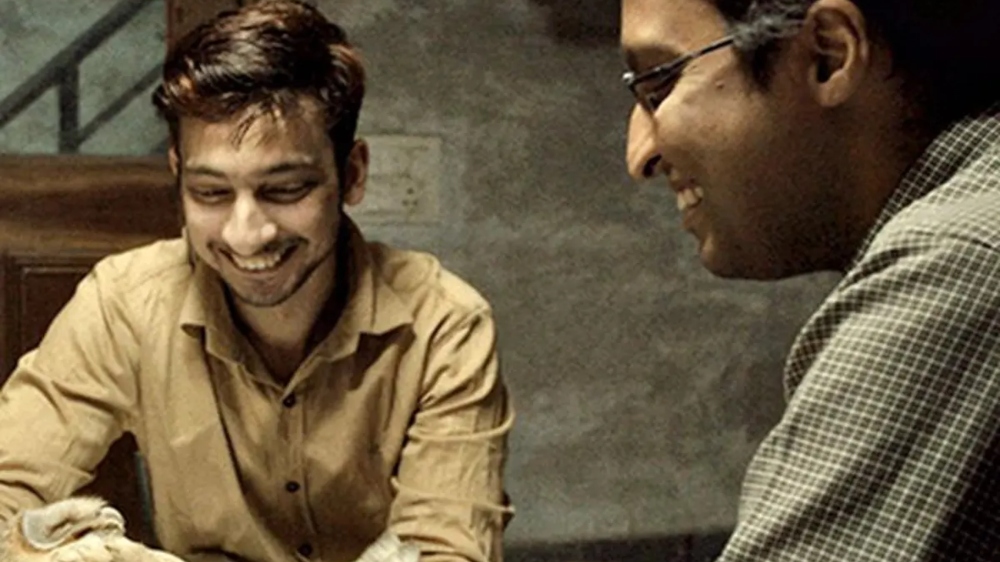
ATL: You’re nominated along with some other very impressive, very different documentaries at the Oscars. How do you think All That Breathes relates to the other nominees?
Sen: Thematically, because they’re different takes on environmental films, Fire of Love, [which] also has to do with the world, the planet. The films are good because they present a whole spectrum. Every film is unlike the other, and every film has its own strong points and fortes. The other filmmakers and I have become close mates, good friends. There’s a lot that one learns from one another. We all come from completely different strands of filmmaking. I feel some degree of kinship with Simon Lereng Wilmont for the excellent vérité stuff that he does in A House Made of Splinters. I’ve always been in awe of Laura Poitras. She’s a staggering figure. She was among only a handful of documentary filmmakers whose names I knew before entering the field. So, it’s a great honor to be in the same category with All the Beauty and the Bloodshed. Also, I like how she has somehow balanced the biography of an artist while keeping the politics of it front and center. Daniel Roher is a very close friend of mine. I’m enthralled by that prank scene in Navalny and how he managed it. It’s quite mad. I’m also good friends with Sara Dosa, who made Fire of Love. That story itself is remarkable, and the material, the footage, the archive… it’s great. The fact that this couple lived and existed, it’s breathtaking. All films are a powerful provenance of their form.
ATL: Are there any other documentaries from this year that really stood out to you as impressive?
Sen: There’s a film called Geographies of Solitude. That was quite interesting. Children of the Mist, for sure. Moonage Daydream. For its craft, Retrograde. Those are the films that come to mind.
ATL: And what’s next for you?
Sen: I haven’t had any time to think. I’ve been so snowed under, and I’m a bit of a slow thinker, so it takes me [time] to think. So I’m going to just unplug after this and decide. I don’t know if it’s fiction or nonfiction. I want to work on something which can be called the ecologically sublime, but that’s about it.
All That Breathes is currently nominated for Best Documentary Feature at the Oscars, and the film is now streaming on HBO Max.


